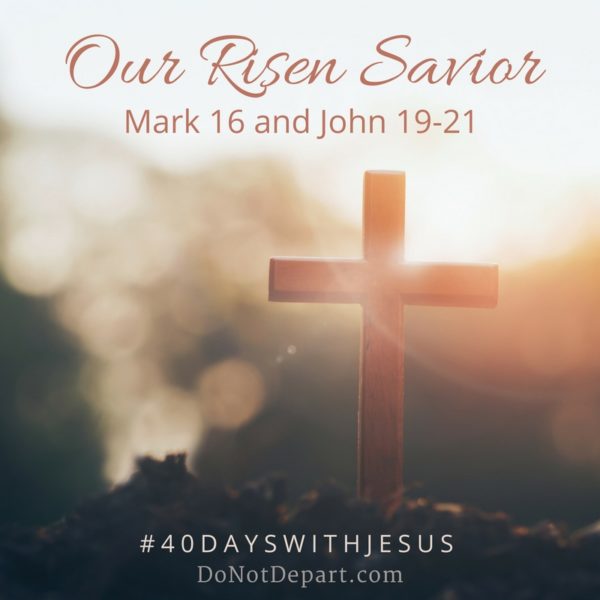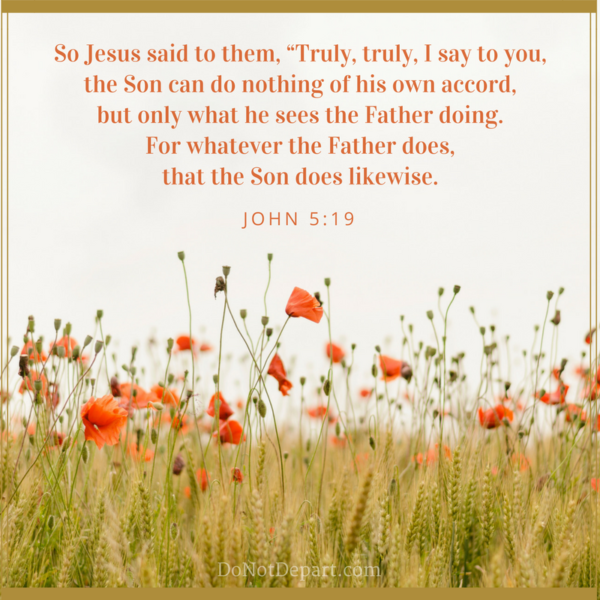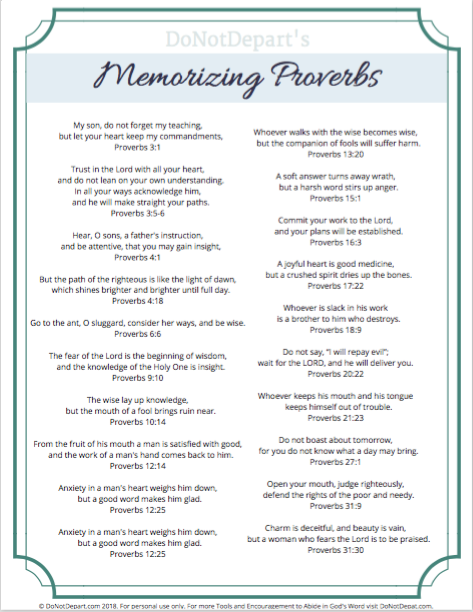As we come to the final verses of Psalm 34, our eyes turn toward eternity…
Many are the afflictions of the righteous,but the Lord delivers him out of them all.He keeps all his bones;not one of them is broken.Affliction will slay the wicked,and those who hate the righteous will be condemned.The Lord redeems the life of his servants;none of those who take refuge in him will be condemned.Psalm 34:19-22

God Delivers Us From Affliction
Many are the afflictions of the righteous,
But the Lord delivers him out of them all. (Psalm 34:19)
Friends, if someone tells you that your challenges are a punishment, and that if you were more holy you would not suffer, remember this passage. The righteous do indeed have afflictions. Saying that life’s challenges are a result of not enough prayer or godliness is bad theology.
We can take heart, because verse 19 also reminds us that God delivers the righteous from ALL his afflictions. We know that deliverance from some of our troubles may not be seen this side of heaven, but we can be confident that God will fully deliver us from all suffering in eternity!
God Preserves Us
He keeps all his bones,
Not one of them is broken.
(Psalm 34:20)
Scholars differ on the intent of this verse. Most agree that the literal and literary implications are that in context it refers to all righteous men, not THE righteous man, Jesus Christ. Writing on this verse, Augustine said, “Bones are the firm supports of the faithful. For as in flesh our bones give firmness, so in the heart of a Christian it is faith that gives firmness. The patience then which is in faith, is as the bones of the inner man: this is that which cannot be broken.”
In Christ, no matter how broken we may feel, God preserves us, and makes us whole. Our faith helps us to patiently endure the trials of life.
John, in chapter 19 of his gospel, does detail the fact that Jesus’ bones were not broken after He was crucified. It is noteworthy that the bones of the sacrificial lamb at Passover were commanded to not be broken (Exodus 12:36, Numbers 9:12), a fact that would not have been unnoticed by Jewish Believers.
Unforgiven Sin Exacts the Ultimate Price
Evil shall slay the wicked,
And those who hate the righteous will be condemned.
(Psalm 34:21)
In the end, the wicked will be ruined by the evil they do. Sin exacts an eternal price!
“…and be sure your sin will find you out.” (Numbers 32:23b)
Make no mistake: there is always hope for redemption, even for those who have done great evil. All have the freedom to choose redemption through Jesus Christ! But those who persist for all their earthly days to sin against God and persecute His people will ultimately pay in eternity.
God is Our Refuge and Our Redeemer
The Lord redeems the soul of His servants,
And none of those who take refuge in Him will be condemned.
(Psalm 34:22)
You and I are sinners too, but as willing servants of the most high God, we have been redeemed by Jesus’ blood! Jesus is our refuge – we tuck ourselves into His arms (we abide!) and are safe.
If you were to stand trial today before a heavenly jury for your wrongdoings, you would be convicted: GUILTY! But in a trial, after a verdict is found, a sentence must be handed down by the judge. And dearest child of God, even though you are guilty of sin, you are NOT condemned, because Jesus is your refuge!
Bless the Lord at All Times
Last week, after 101 years of faithfulness, a precious son of God we know slipped away to Jesus for eternity. He experienced many afflictions in his life, and certainly in his later years, as his body deteriorated, many of them were physical. Yet this dear brother has now been completely delivered from every affliction, physical and otherwise. In his earthly life he praised God continually. Now, face to face, he praises Him for eternity.
Friend, trouble is certain in this earthly life, but God protects us, and redeems all our suffering. Indeed we can say, from the moment words first form in our mouths, to the evening of our lives when like the setting sun we fade, “I will bless the Lord at all times; His praise shall continually be in my mouth.” (Psalm 34:1)
FOR STUDY AND REFLECTION
- Make a list of all the things Psalm 34:19-22 says God will do. What do these actions show about His character?
- Share with someone about a time God delivered you from an affliction.
- What do you think of Augustine’s analogy of faith being like the soul’s bones?
- Numbers 32:23b says “…and be sure your sin will find you out.” What do you think this means? Have you observed this?
- What does it mean to you to “take refuge” in God”? You may find doing a word study gives you insight.











































